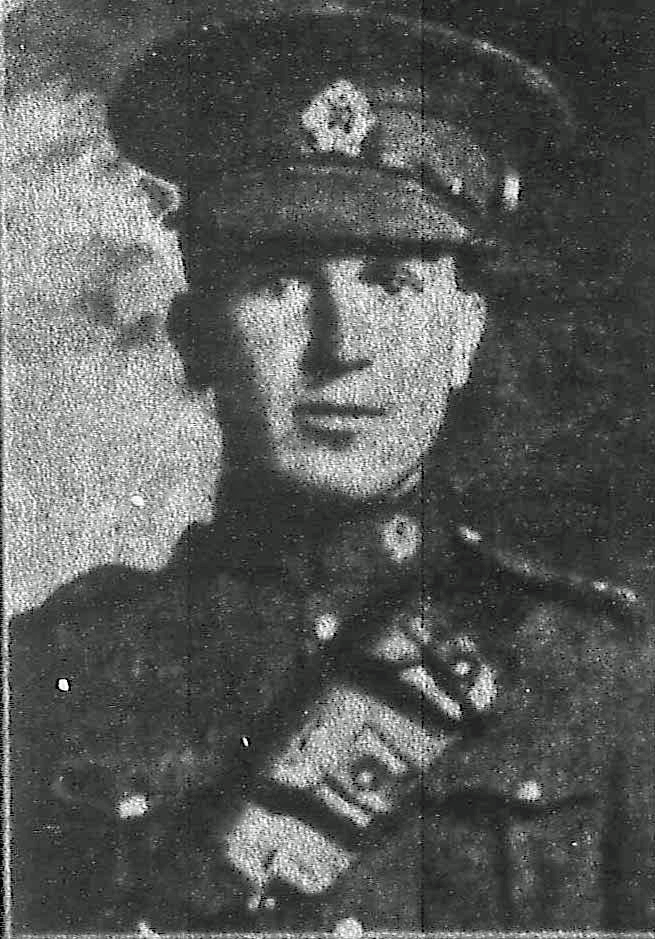

Private Gordon Carveth

Private Gordon Hilliard Douglas Carveth was born on September 18th, 1894, in Hall's Glen (in Peterborough County) , Ontario to Annie and William Carveth. He was the youngest of ten siblings, and the only to enlist. Before the war, he worked as a brakeman for the Canadian Pacific Railroad. He and his family lived at 907 South Street, Warsaw, Ontario, K0L 3A0. He was 5 ft 8, he had a fair complexion, he had dark hair, and brown eyes. When having his medical exam, the examiner noted scars on his left knee and a crushed index finger. Gordon had previous experience in the armed forces, he served in the 26th Canadian Field Artillery. In March of 1915, he officially (attestation papers signed and all) enlisted in the war, first in the 8th Canadian Mounted Rifles. He underwent vigorous training in Ottawa, and then again in a training camp in England. The 8th Mounted Rifles later disbanded, and Gordon became a part of the 6th Canadian Mounted Rifles. Later on, in October of 1915, the 6th C. M. R. sailed overseas to Flanders, in Belgium. The 6th C. M. R. was removed from the trenches and was split into other regiments, and Gordon Carveth became a part of the 5th Canadian Mounted Rifles. He spent most days reinforcing the trenches (both in combat and construction). Private Gordon's regiment joined the front line on Mount Sorrel on April 21st, 1916 (Good Friday). Three days later, Private Gordon Carveth was killed in action, on April 24th, 1916, at the young age of 22. He was buried in Maple Copse Cemetery, in Belgium.
September 18th, 1894
~
April 24th, 1916

Private Gordon Carveth
Courtesy of http://dummersoldiers.blogspot.ca/search?q=Gordon+Carveth

8th C. M. R. In Peterborough
Courtesy of http://dummersoldiers.blogspot.ca/search?q=Gordon+Carveth

Private Gordon Carveth's Regiment's Location On Date Of Death
Courtesy of http://dummersoldiers.blogspot.ca/search?q=Gordon+Carveth

Private Gordon Carveth's Grave
Courtesy of http://dummersoldiers.blogspot.ca/search?q=Gordon+Carveth
Poetry During The Great War
Poetry was a very important part of World War One. It painted a more realistic picture of what it was really like at war, than the various forms of propaganda used to convince people to enlist. It reflected the true emotion of being in combat.
The Motherland
From Rhymes of a Hut Dweller
By Private Albert Drummond
Hear, my sons, the drums of war!
I am seeking you afar.
Rally! rally! here to-day!
Though blood-red the price we pay.
Hear, my sons, the calling pipe!
'Tis a stain they seek to wipe,
Calling, calling, from afar
Rolling drums and pipes of war.
Yours, my sons, a freeman's pride!
Rally, rally to my side!
Rally, rally round to-day!
Though blood-red the price we pay.
In Flanders Fields
By Lieutenant Colonel John McCrae
In Flanders fields the poppies blow
Between the crosses, row on row,
That mark our place: and in the sky
The larks still bravely singing fly
Scarce heard amid the guns bellow.
We are the dead: Short days ago,
We lived, felt dawn, saw sunset glow,
Loved and were loved: and now we lie
In Flanders fields!
Take up our quarrel with the foe
To you, from failing hands, we throw
The torch: be yours to hold it high
If ye break faith with us who die,
We shall not sleep, though poppies grow
In Flanders field
Courtesy of https://youtu.be/6e4jqTF6aks
Historical Fiction

